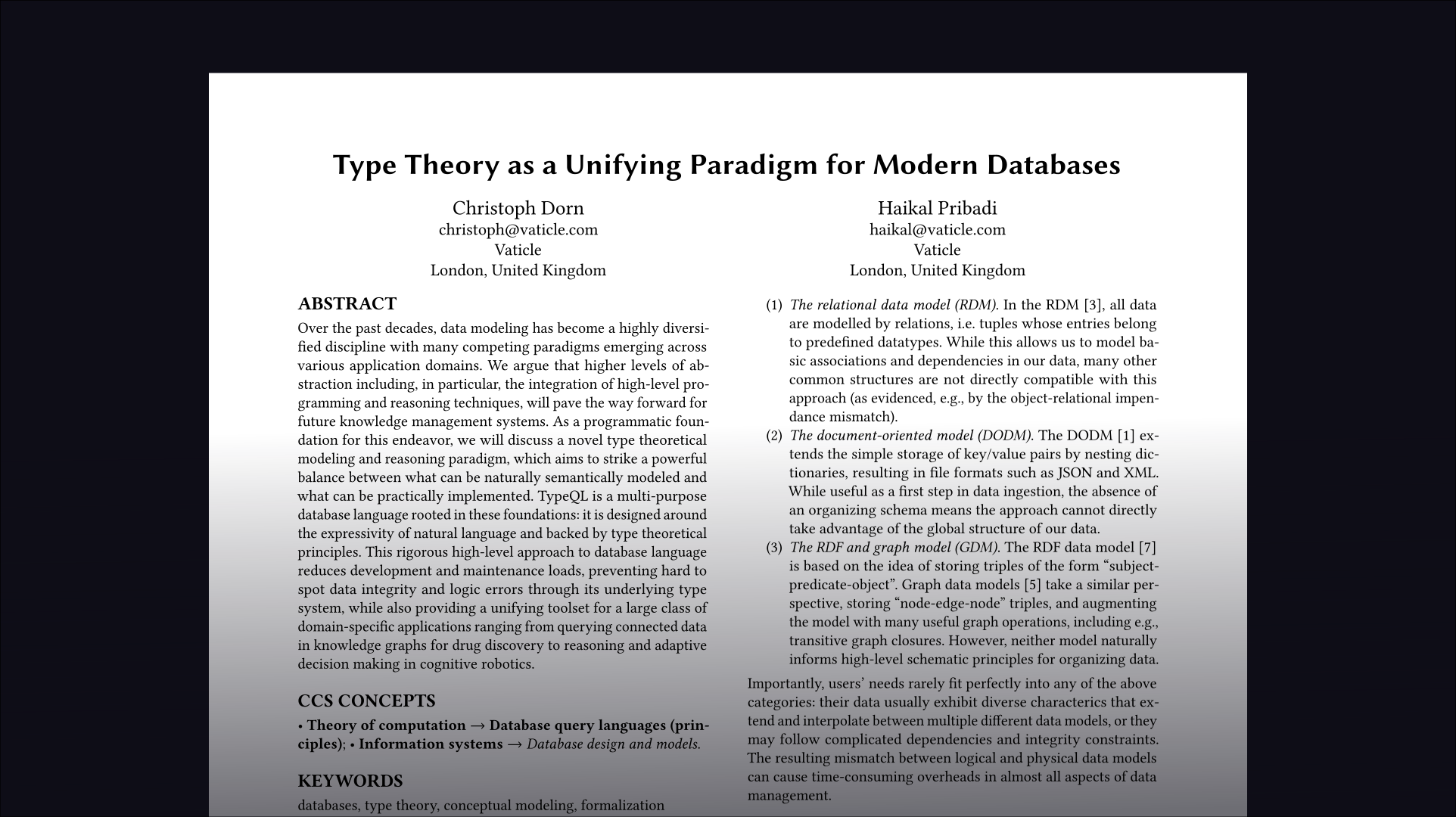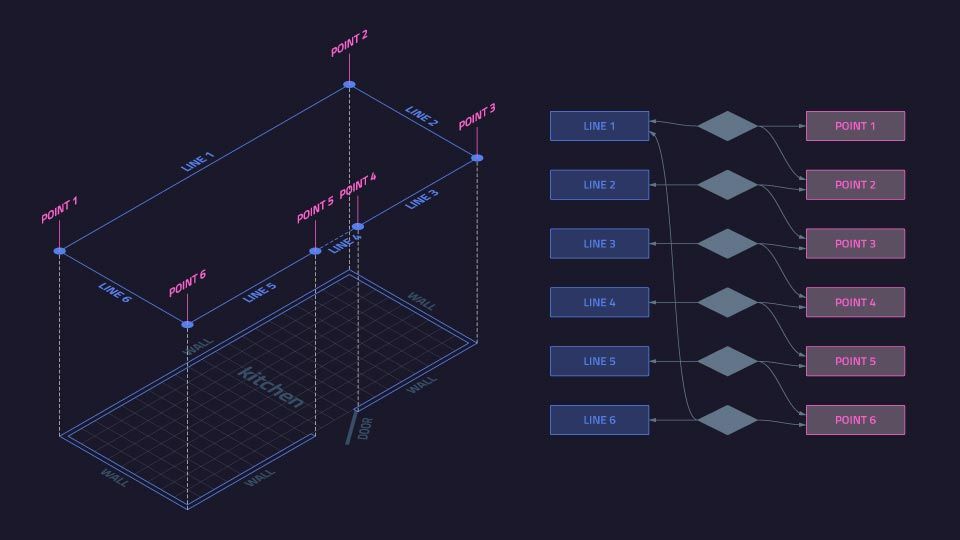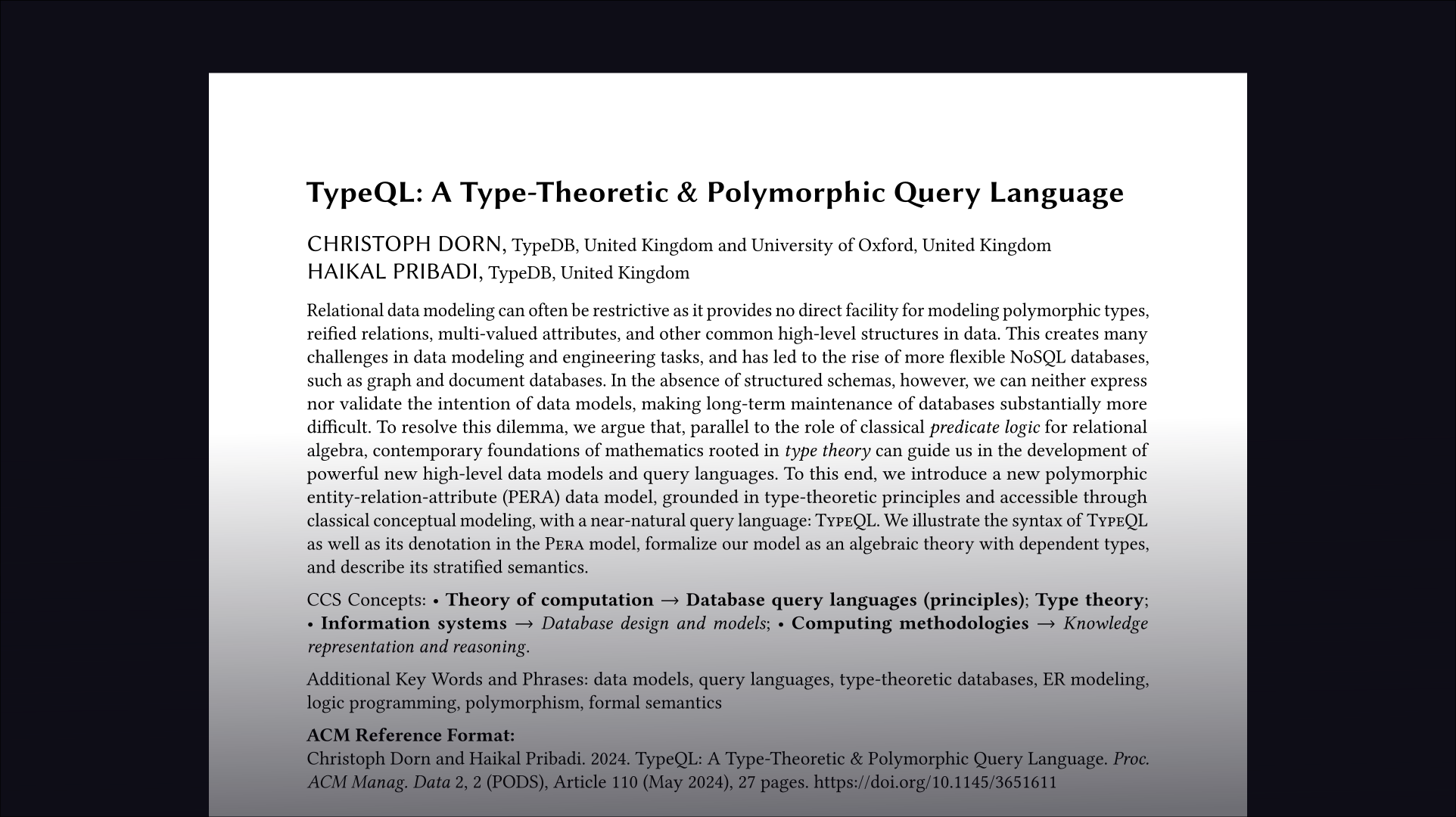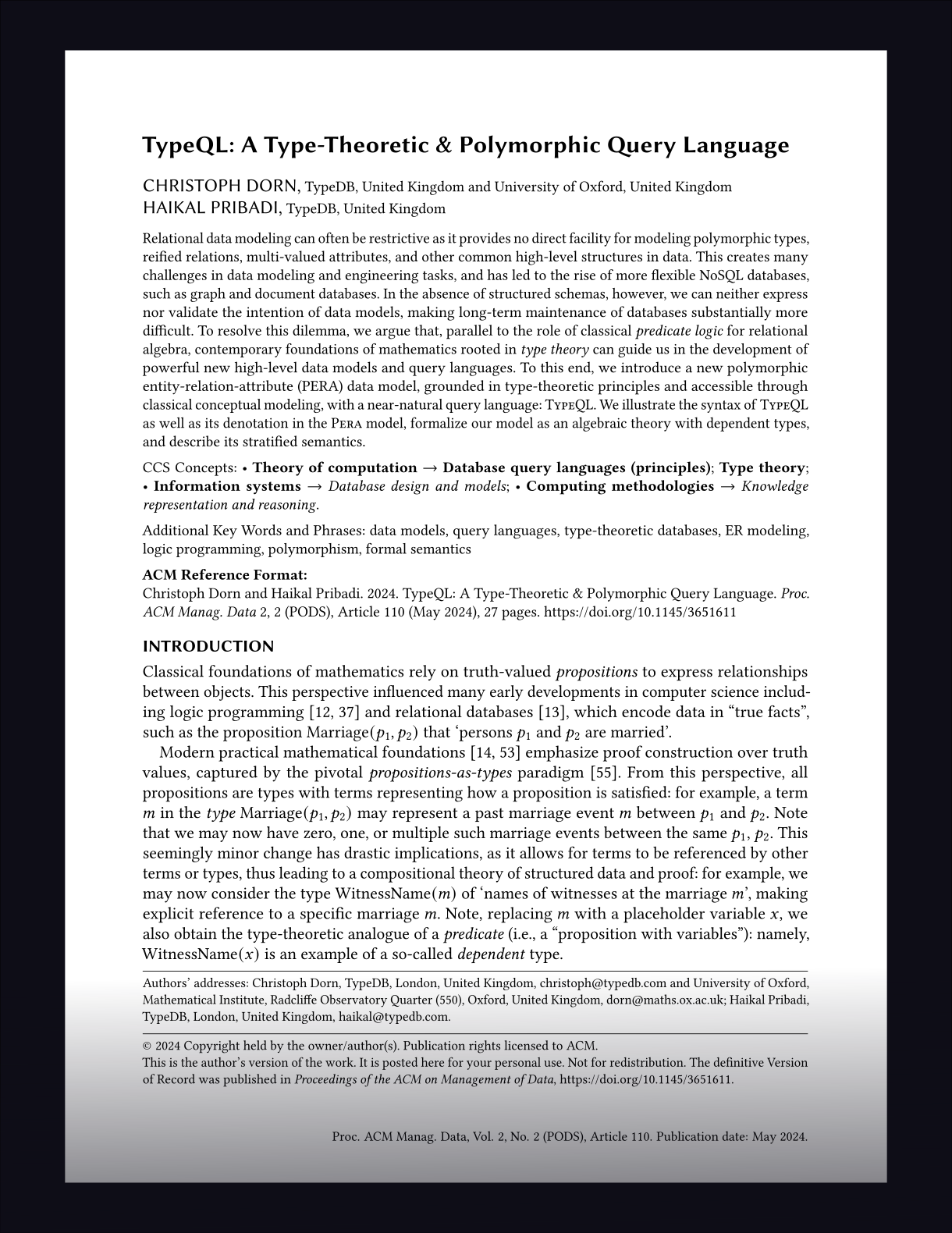TypeDB Papers
Academic papers on the foundations and applications of TypeDB and TypeQL.
TypeQL: a Type-Theoretic and Polymorphic Query Language
ACM SIGMOD/PODS 2024
Read Announcement and Summary
Abstract. The paper explores a novel way of integrating typeful programming with performant database design. Centrally, the paper suggest to evolve the influential paradigm of Propositions as Types into principle of "Queries as Types". In other words, in TypeQL the user constructs types in order to formulate queries.
The motivation for our work is practical. Relational data modeling can often be restrictive as it provides no direct facility for modeling polymorphic types, reified relations, multi-valued attributes, and other common high-level structures in data. This creates many challenges in data modeling and engineering tasks, and has led to the rise of more flexible NoSQL databases, such as graph and document databases. In the absence of structured schemas, however, we can neither express nor validate the intention of data models, making long-term maintenance of databases substantially more difficult.
To resolve this dilemma, we argue that modern type theory can guide us in the development of powerful new high-level data models and query languages. To this end, we introduce a new polymorphic entity-relation-attribute (PERA) data model, grounded in type-theoretic principles and accessible through classical conceptual modeling, with a near-natural query language: TypeQL.

Type Theory as a Unifying Paradigm for Modern Databases
Published in Proc. ACM CIKM 2023
10.1145/3583780.3615999
Abstract: Over the past decades, data modeling has become a highly diversified discipline with many competing paradigms emerging across various application domains. We argue that higher levels of abstraction including, in particular, the integration of high-level programming and reasoning techniques, will pave the way forward for future knowledge management systems.
As a programmatic foundation for this endeavor, we will discuss a novel type theoretical modeling and reasoning paradigm, which aims to strike a powerful balance between what can be naturally semantically modeled and what can be practically implemented. TypeQL is a multi-purpose database language rooted in these foundations: it is designed around the expressivity of natural language and backed by type theoretical principles.
This rigorous high-level approach to database language reduces development and maintenance loads, preventing hard to spot data integrity and logic errors through its underlying type system, while also providing a unifying toolset for a large class of domain-specific applications ranging from querying connected data in knowledge graphs for drug discovery to reasoning and adaptive decision making in cognitive robotics.

The Role of Symbolic AI with ML in Robotics
Data in robotics is often incredibly heterogeneous as it needs to represent real-world data, planning systems, hardware data, and much more. This requires a database system that can build the type of knowledge bases that can model this type of information and all its semantic richness. This is why many robotics organisations use TypeDB to natively model constructs such as hyper relations, nested relations, type hierarchies and much more.
With TypeDB, you'll have the right framework to build knowledge-enabled robots. TypeDB gives robots the ability to reason independently without having to rely exclusively on human intervention or expensive machine learning approaches.
Download the white paper below to learn how TypeDB can be used to build robotics systems. The white paper includes code examples that you can start using today.

